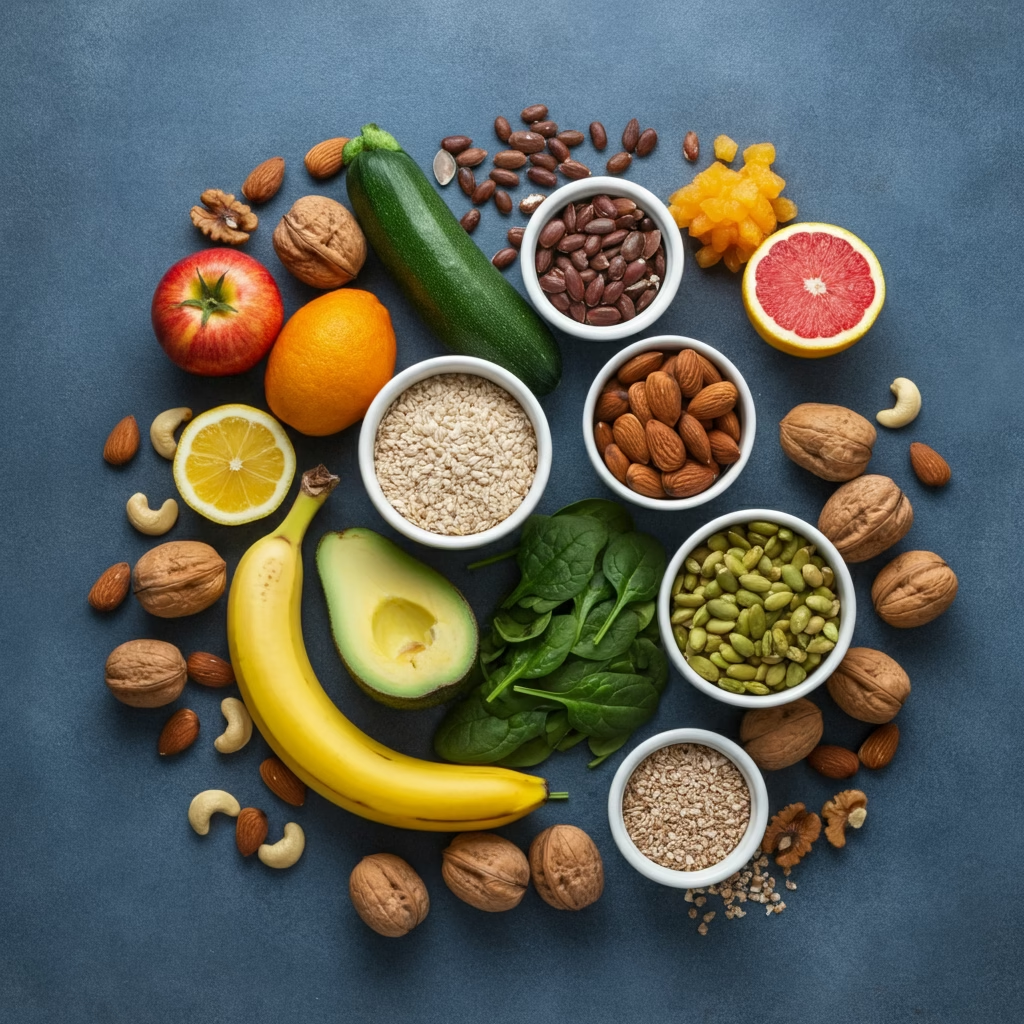In today’s fast-paced world, maintaining high energy levels throughout the day is more than just a lifestyle choice—it’s a necessity. Whether you’re juggling work, school, family responsibilities, or an active social life, the fuel you provide your body plays a direct role in your productivity, mood, and overall well-being. That’s where mysmcc food tips come in.
By combining modern nutritional science with practical everyday food strategies, mysmcc offers a roadmap to help individuals eat smarter and feel more energized without extreme diets or complicated regimens. In this comprehensive guide, we’ll explore the role of nutrition in energy production, uncover common mistakes that drain vitality, and share mysmcc-approved food tips to keep you performing at your best from morning to night.
Understanding the Link Between Food and Energy
Before diving into the tips, it’s important to understand why food directly impacts our energy levels. The human body is like a high-performance engine—it requires the right type of fuel to function efficiently. Food provides three primary macronutrients:
-
Carbohydrates – The body’s preferred source of quick energy, especially for the brain and muscles.
-
Proteins – Essential for tissue repair, enzyme production, and long-term satiety.
-
Fats – A concentrated energy source and vital for hormone regulation.
When these macronutrients are consumed in the right balance, they provide a steady flow of energy. However, poor choices—like excessive refined sugar, fried foods, or skipping meals—can lead to sharp spikes and crashes in blood sugar, resulting in fatigue, irritability, and sluggishness.
Common Energy-Draining Food Habits
Many people unknowingly sabotage their energy levels through everyday dietary habits. mysmcc emphasizes identifying and correcting these patterns:
-
Skipping Breakfast – Missing your first meal forces your body to rely on stored energy reserves, leading to morning fatigue.
-
Relying on Caffeine Alone – Coffee provides a short-term boost but often causes an afternoon crash.
-
High Sugar Snacks – Candies, pastries, and soda cause rapid glucose spikes followed by sudden drops.
-
Low Hydration – Even mild dehydration can reduce focus and physical stamina.
-
Overeating at Lunch – Large, heavy meals can make you feel sluggish due to increased blood flow to the digestive system.
mysmcc Food Tips for All-Day Energy
Now that we understand the problem areas, let’s explore mysmcc’s actionable food tips to keep your body fueled and energized.Start Your Day with a Balanced Breakfast
A mysmcc-approved breakfast includes complex carbs, lean protein, and healthy fats. For example:
-
Oatmeal with chia seeds, almond butter, and fresh berries
-
Whole-grain toast with avocado and boiled eggs
-
Greek yogurt with honey and granola
These combinations provide slow-releasing energy, preventing morning fatigue.
Prioritize Whole, Unprocessed Foods
Highly processed foods often contain hidden sugars, unhealthy fats, and artificial additives that strain your metabolism. mysmcc recommends filling your plate with:
-
Fresh fruits and vegetables
-
Whole grains like quinoa, brown rice, and barley
-
Lean proteins such as chicken, turkey, fish, tofu, or legumes
-
Nuts, seeds, and olive oil for healthy fats
Eat Smaller, Frequent Meals
Instead of three large meals, mysmcc suggests 4–6 smaller portions throughout the day to maintain steady blood sugar. This helps prevent energy dips and keeps your metabolism active. Examples of healthy snacks:
-
A handful of almonds and a banana
-
Carrot sticks with hummus
-
Rice cakes with peanut butter
Stay Hydrated with Energy-Supportive Drinks
Water is essential, but you can also include herbal teas and infused water for variety. Drinks like green tea provide gentle caffeine and antioxidants without the crash associated with coffee. mysmcc warns against sugary sports drinks unless you’ve engaged in intense physical activity.
Combine Carbs with Protein for Sustained Energy
Eating carbs alone can cause rapid spikes in blood sugar. By pairing them with protein, you slow digestion and extend energy release. Examples:
-
Apple slices with cheese
-
Brown rice with grilled salmon
-
Whole-wheat pasta with lean turkey meatballs
Incorporate Iron-Rich Foods
Low iron levels can cause fatigue and weakness. mysmcc encourages including:
-
Spinach and kale
-
Lean red meat in moderation
-
Lentils and chickpeas
-
Pumpkin seeds and fortified cereals
Choose Healthy Fats for Brain and Hormone Support
Good fats support long-term energy and cognitive performance. Add these to your diet:
-
Avocados
-
Walnuts
-
Olive oil
-
Flaxseeds and chia seeds
Reduce Added Sugars
Sugar is an energy thief in disguise. While it gives a quick burst, the inevitable crash can leave you drained. Replace desserts and sugary snacks with natural sweetness from fruit, or bake using honey and dates instead of refined sugar.
Plan Meals Ahead to Avoid Energy Slumps
Meal prep is a cornerstone of mysmcc’s energy-boosting strategy. By preparing healthy options in advance, you avoid relying on fast food or vending machine snacks that can derail your energy levels.
Don’t Forget Micronutrients
Vitamins and minerals like magnesium, vitamin B12, and vitamin D play critical roles in energy production. Sources include:
-
B12 – Fish, eggs, dairy
-
Magnesium – Dark chocolate, almonds, spinach
-
Vitamin D – Fatty fish, fortified milk, sunlight exposure
Sample mysmcc Daily Energy Menu
To put these tips into practice, here’s a mysmcc-inspired sample day plan:
Breakfast (7:30 AM)
-
Scrambled eggs with spinach and tomatoes
-
Whole-grain toast with avocado
-
Herbal tea or lemon water
Mid-Morning Snack (10:00 AM)
-
A handful of almonds and blueberries
Lunch (1:00 PM)
-
Grilled chicken breast with quinoa and steamed broccoli
-
Olive oil and lemon dressing
Afternoon Snack (3:30 PM)
-
Apple slices with almond butter
Dinner (7:00 PM)
-
Baked salmon with roasted sweet potatoes and green beans
-
Small side salad
Evening Drink (9:00 PM)
-
Chamomile tea for relaxation before bed
Lifestyle Factors That Support Food-Based Energy
mysmcc emphasizes that food is just one part of the equation. Your lifestyle habits can amplify or diminish the effects of good nutrition. Consider these energy-boosting practices:
-
Regular Exercise – Improves blood circulation and oxygen delivery to cells.
-
Adequate Sleep – 7–9 hours is crucial for muscle recovery and mental clarity.
-
Stress Management – Chronic stress drains energy reserves quickly; mindfulness or yoga can help.
-
Mindful Eating – Slowing down to chew thoroughly helps with digestion and nutrient absorption.
How mysmcc Food Tips Differ from Fad Diets
Fad diets often focus on extreme restrictions, rapid weight loss, or trendy superfoods. mysmcc, on the other hand, promotes sustainable and balanced eating habits. The goal isn’t just to look good temporarily but to maintain high energy, strong immunity, and mental focus over the long term.
Some key differences include:
-
Personalization – Adjusting meal plans to suit individual energy needs and preferences.
-
Flexibility – Allowing room for occasional indulgences without guilt.
-
Focus on Nutrient Density – Choosing foods that deliver maximum vitamins, minerals, and antioxidants per bite.
The Science Behind mysmcc Energy Nutrition
mysmcc’s recommendations are rooted in scientific principles of metabolism and nutrient absorption. For example:
-
Low Glycemic Index Foods – These release glucose slowly, avoiding sharp blood sugar spikes.
-
Protein Timing – Spreading protein intake evenly throughout the day supports muscle repair and satiety.
-
Healthy Fats and Brain Function – Omega-3 fatty acids improve mental sharpness and reduce fatigue.
By combining these principles with real-world meal suggestions, mysmcc bridges the gap between science and daily living.
Final Thoughts
Boosting your energy isn’t about consuming endless cups of coffee or relying on sugar for quick bursts. With mysmcc food tips, you learn to nourish your body in a way that provides lasting vitality and focus. From balanced breakfasts to strategic snacking and hydration, every choice you make contributes to your overall energy bank.
By adopting these principles consistently, you’ll notice not just improved physical stamina but also sharper mental clarity, better mood stability, and a stronger immune system. In the end, food isn’t just fuel—it’s the foundation of a more energized, vibrant, and productive life.


